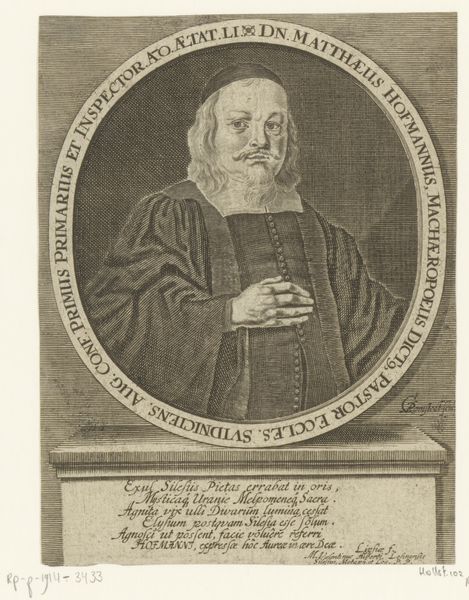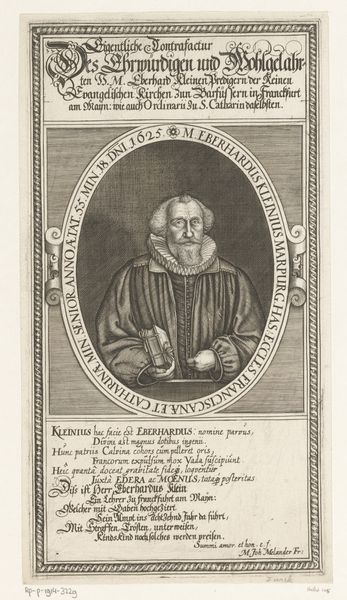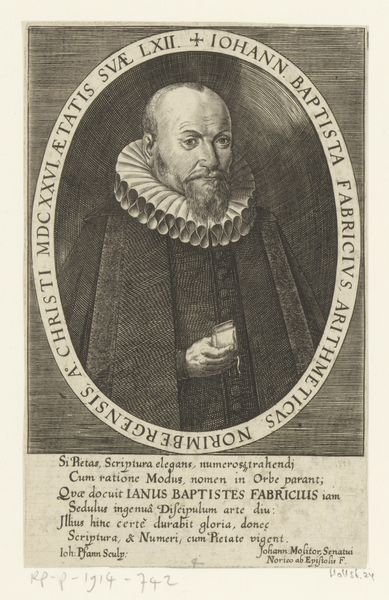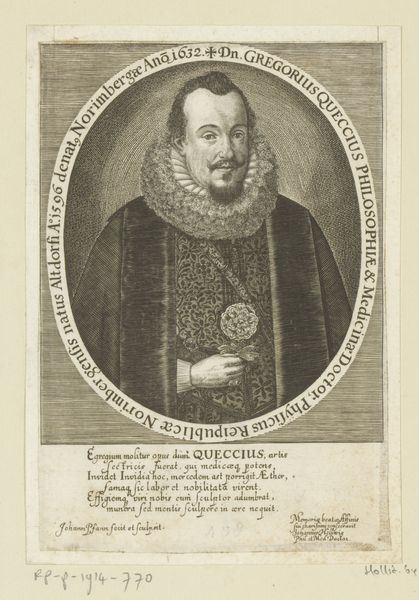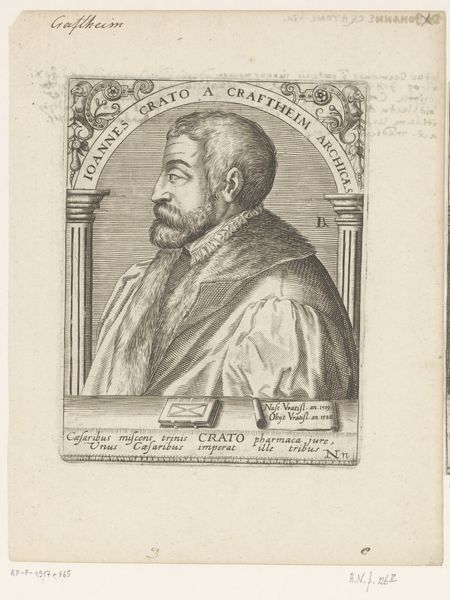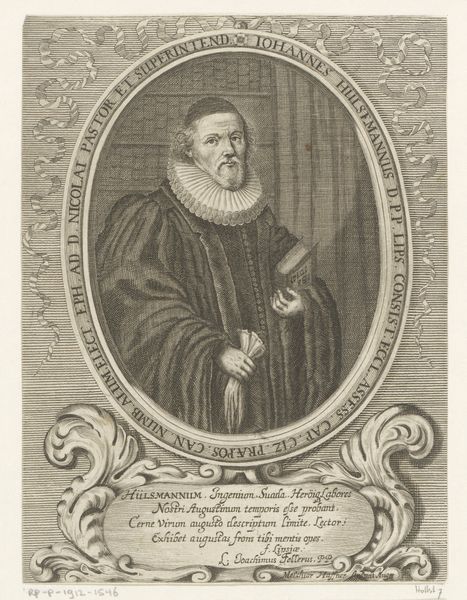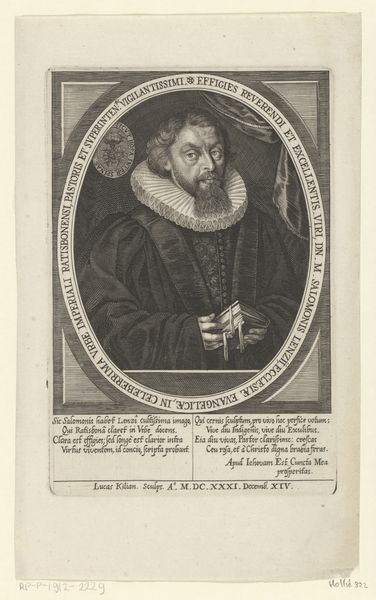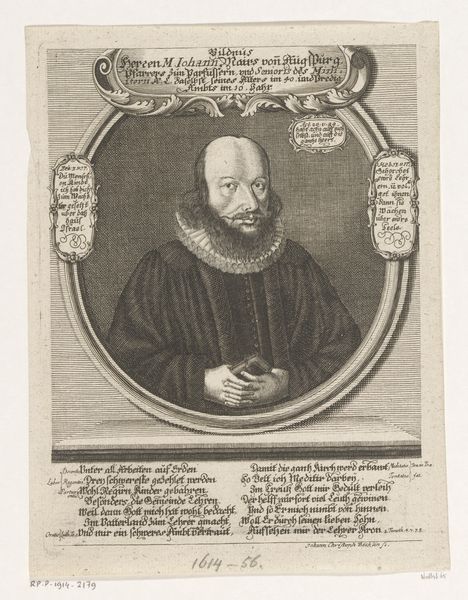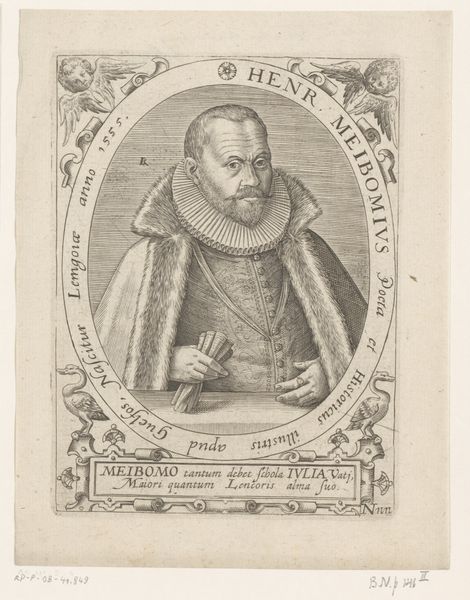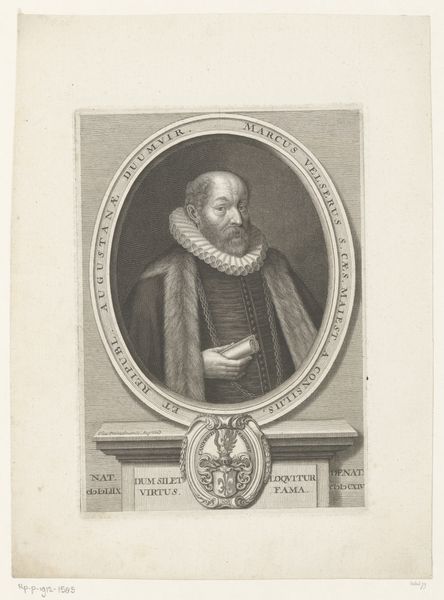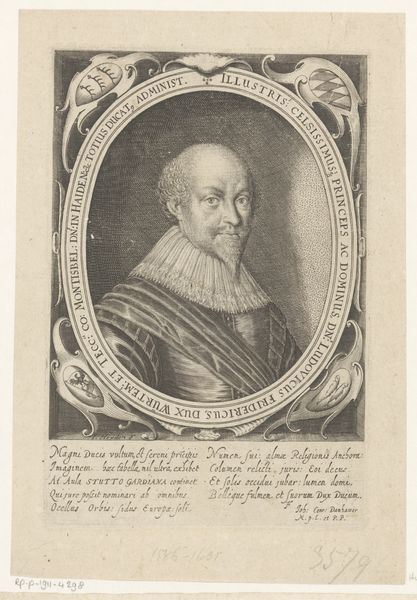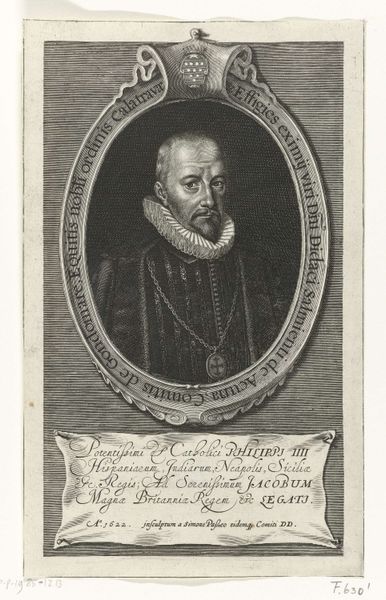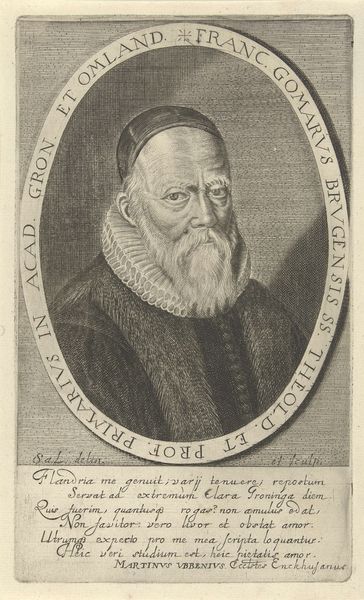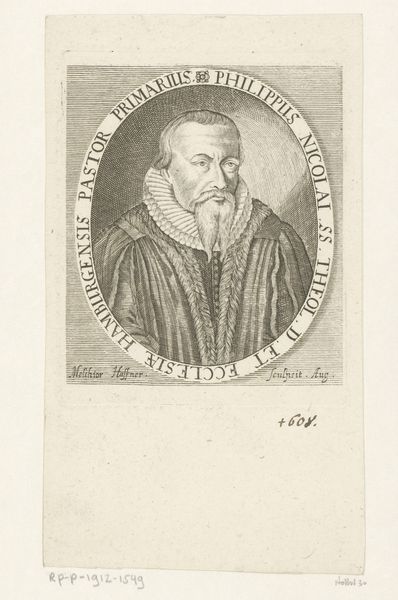
print, paper, engraving
#
portrait
#
baroque
# print
#
old engraving style
#
paper
#
portrait reference
#
engraving
Dimensions: height 162 mm, width 123 mm
Copyright: Rijks Museum: Open Domain
This is Christian Romstet’s portrait of Anton Faber, made using engraving, a printmaking technique that was both reproductive and artistic. Engraving involves using a tool called a burin to carve lines directly into a metal plate. The plate is then inked, and the ink is carefully wiped from the surface, remaining only in the incised lines. When paper is pressed against the plate, the image is transferred. This process demands immense skill and precision. Look closely, and you can see how Romstet varied the depth and density of lines to create tone and texture. The hatching and cross-hatching give Faber’s face a three-dimensional quality, while also rendering the texture of his beard, and the intricate details of his garments. Engraving, like other printmaking techniques, allowed for the mass production of images. This had a democratizing effect, making art accessible to a wider audience. Yet, the labor-intensive process also reflects the economic realities of the time, as the cost of commissioning an engraving would have been considerable. Considering the material and the making sheds light on the social context in which this portrait was created.
Comments
No comments
Be the first to comment and join the conversation on the ultimate creative platform.
